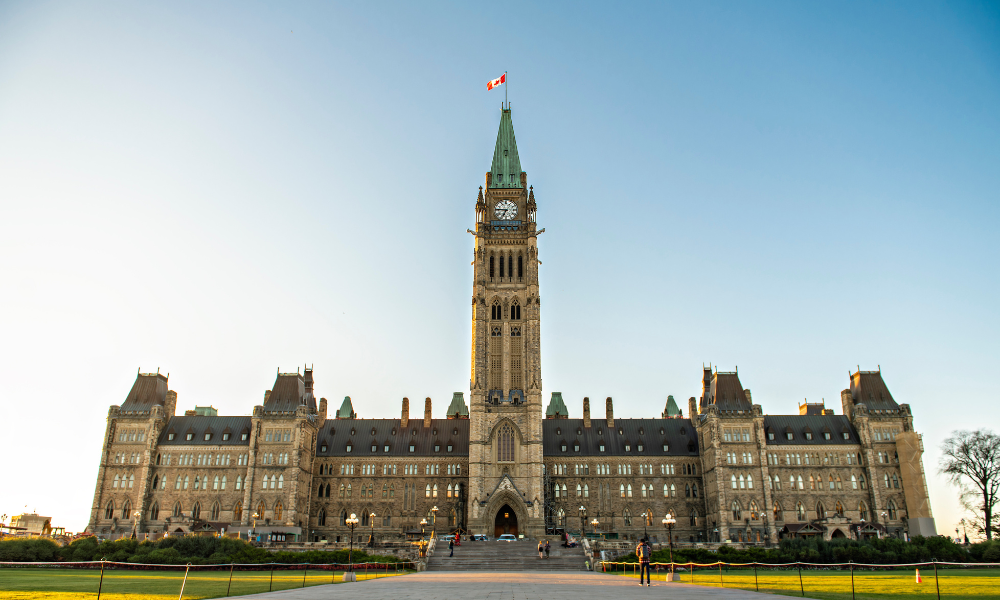Housing advocates press them to move past divisions on critical policies

As Canada adjusts to the results of its latest federal election, housing industry players are calling on the country’s two major political parties to collaborate on key policies that affect the commercial real estate sector and the broader economy.
Mark Fieder, principal and president of Avison Young Canada, urged the Liberal and Conservative parties to focus on shared priorities, especially as the real estate industry faces pressures from economic uncertainty and trade tensions.
"Occupiers and investors have been trying to understand the impacts of tariffs and a new government in Canada," Fieder said. "Now, the new government is in place and will be in a solid position to address the challenges of tariffs and our relationship with the American administration and other trading partners around the world."
The election earlier this week resulted in a fourth consecutive victory for the Liberal Party under former Brookfield Asset Management chair Mark Carney, securing his role as Canada’s 24th prime minister. However, the Liberals fell short of winning a majority, finishing with 168 seats. The Conservative Party closely followed with 144 seats, while the Bloc Québécois secured 23, the New Democratic Party seven, and the Greens one.
Fieder emphasized that instead of the Liberals focusing solely on courting smaller parties, there’s an opportunity for the two major parties to work together, especially since they share common ground on several real estate-related issues.
Read next: What Carney's election win means for housing and mortgages in Canada
“Both parties promised to eliminate the Goods and Services Tax (GST) for purchasing a first home of less than one million dollars,” Fieder said. “Both parties also committed to lowering taxes for the middle class, which should help consumer spending.”
He added that both leaders have pledged to streamline approvals for major energy infrastructure projects, which could benefit Alberta’s economy and support national energy security.
“Further, both the Liberals and the Conservatives are promoting more efficient government management and reduction of red tape and bureaucracy,” Fieder said. “These measures are all good for our economy and for commercial real estate - key campaign promises made by both parties that will be beneficial for commercial real estate, and should technically be facing little or no opposition now.”
Commercial real estate sentiment
Despite recent uncertainties, Fieder said the commercial real estate market was showing signs of renewed confidence heading into 2025.
“The recovery within commercial real estate and the economy is still in excellent shape,” he said. “We have low unemployment and inflation is under control, so far. A lot of positive things were leading up to a recovery for commercial real estate in 2025.”
At the same time, Robert Kavcic, senior economist at the Bank of Montreal, noted that the Liberal platform likely signals higher spending and more borrowing, which could influence central bank decisions.
“Increased fiscal stimulus could also stay the Bank of Canada's hand somewhat,” Kavcic said in a report. “More rate cuts are still likely from the Bank of Canada, but the budget will be a factor in determining the depth of those cuts.” BMO is forecasting another 75 basis points of rate cuts by year-end, while markets are pricing in around 50 basis points.
Coalition housing plan
Alongside commercial real estate leaders, the Housing Canada Coalition is urging the new government to take swift action on housing affordability and homelessness.
The coalition has developed a 10-point plan to end the “housing game.” The roadmap includes immediate and longer-term steps to “ensure that every Canadian has a safe, secure, and affordable home.”
“It’s time to end the housing game - for good,” the coalition said in a statement.
The coalition welcomed elements of the Liberal platform, including commitments to build more affordable housing, reduce development barriers, eliminate GST for first-time home buyers on homes under $1 million, retain and expand purpose-built rental stock, and invest in prefabricated and modular housing. However, it stressed that gaps remain, particularly around homelessness and Indigenous housing.
“Canadians’ fear of losing their homes as a result of the trade war shows action on homelessness can’t wait,” the coalition said. “This response must be focused on root causes, not criminalization. As the Prime Minister noted on the campaign trail, the main issue underlying the rise of homelessness - particularly unsheltered homelessness - is lack of homes.”
Make sure to get all the latest news to your inbox on Canada’s mortgage and housing markets by signing up for our free daily newsletter here.



